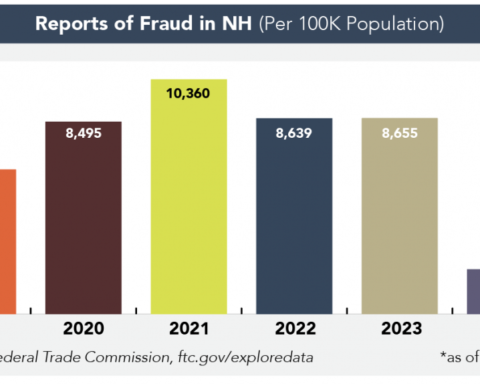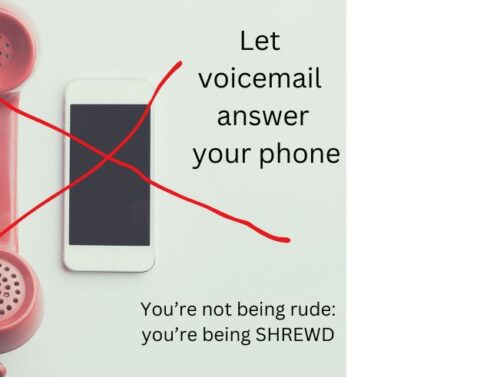Dylan Croll: Sat, September 23, 2023, Original Post Yahoo!Finance
Sitting at home one day in April, Dr. Rudolph Cumberbatch received a phone call from an unknown number. When he picked up, he recognized his grandson Eddie’s voice.
Eddie explained that he was calling from Ohio, that he’d been in a serious accident, and that though he was OK, his car had been totaled. He needed $18,000 immediately.
But Eddie’s father, who was nearby, felt suspicious when he learned what was happening. He called Eddie only to find that the 19-year-old was healthy and safe at home in his Chicago apartment. There had been no car wreck. A voice scammer had found Eddie’s popular TikTok Channel, sampled his voice with speech synthesis technology, and impersonated him.
“I sort of fell for it because basically, it sounded very much like him,” Dr. Cumberbatch told Yahoo Finance. “I was so shaken up that I didn’t even question it, because I get a lot of screwed-up calls and I always question these people. But this one I did not question at all.”

Cumberbatch’s experience is one of many raising concerns among experts who worry that voice scams could pose an increasing threat to Americans as artificial intelligence, or AI, continues to evolve and makes it harder to detect what’s real and what’s not. Still, there are several ways Americans can protect themselves from being swindled.
“It’s going to be extremely common, because what tends to happen in anything that is related to manipulated media, which this falls under, is once you have someone demonstrate the effectiveness of that technique, you’re going to have an endless number of copycats who get creative with it and try to do a variation on the initial grift,” said Wasim Khaled, co-founder and chief executive of Blackbird.AI, an AI-powered risk intelligence firm.
In March, the Federal Trade Commission warned of an increase in AI voice scams, while a recent McAfee study found that out of 7,000 people surveyed, one in four indicated they had experienced an AI voice scam or knew someone who had. The same study reported that 77% of those who received an AI voice call lost money.

Though scams have always existed, AI has made them vastly more convincing.
For example, in romance scams, scammers have traditionally posed as prospective lovers to swindle their victims. Previously, fraudsters could connect with potential victims over email or messenger, but now they can use voice-cloning technology to disguise their voices as well. In other words, a male scammer could call a lonely old man with the fake voice of a young woman in an attempt to defraud him.
“There’s impersonations, there’s government agency scams, there’s prize scams, there’s gift card scams, caller ID spoofing,” said Khaled. “All of these types of scams have been going on in one form or another… but being able to clone a voice now supercharges those existing scams that already worked pretty well, but create an additional level of authenticity as well.”
With McAfee’s assistance, Yahoo Finance sampled audio of Executive Editor Brian Sozzi on Yahoo Finance Live and crafted a scam of our own. The results are pretty disconcerting. Listen for yourself.

AI makes voice scams more sophisticated
Scam experts warn that voice scams pose a serious threat to Americans as AI continues to evolve.
Yahoo Finance’s scam required only one minute of uninterrupted audio and an easily accessible software. The McAfee report found that some scammers need just three seconds of audio of someone’s voice to create a convincing fake. Meanwhile, social media instructionals on voice cloning abound, meaning that even a mediocre scammer can learn the tech and produce impressive results.
But folks can still fight back, experts say.
“If you have some level of knowledge and some level of defense that you take personal responsibility for it … that’s the only line of defense you have today,” Khaled said, noting that from a tech perspective, there are no safeguards “in place yet.”
“So you have to get educated,” he added. Here’s how.
Have a security word
Experts say that security words are one of the most effective forms of defense against voice AI scams. That means coming up with a secret word or phrase, so if a fraudster calls and fails to give the secret phrase, you can be confident that you’re about to be the victim of a ruse.
“If they’re asking for something like a ransom payment for a kidnapping, what is that secret word?” Khaled said. “Basically get ahead of the situation before it gets any further.”
Consider location-tracking services
Dr. Michael Skiba, also known as Dr. Fraud for his expertise in scams and crime, said that tracking services like Find My or Life360 can help if you think you’re on the receiving end of a fraud.
For instance, if a swindler calls you and tells you he’s kidnapped your significant other in another country, you can verify whether that’s true on Find My Friends, which permits users to see their friends’ location on a map.
“So, if you get a call saying that your son or daughter is in Mexico and you look and they’re at their college campus … you’re right off the bat thinking my flag should be out,” he said.
Be wary of unknown numbers
Steve Grobman, senior vice president and chief technology officer at McAfee, advised folks to screen unexpected phone calls from unknown numbers. Many mobile providers offer call screening, where the caller has to provide identifying information before the user even answers the call. The cell providers sometimes label unknown phone numbers as “Spam Risk” or “Telemarketer.”
“When in doubt, sending an unknown or unexpected number to voicemail is a good approach,” Grobman said.
Be aware of your online presence
Take inventory of your social media accounts and channels where your voice is on display.
“One of the important things to do is to make any social media account private, and that is so that people can’t just go onto a public Instagram account, grab audio from that video clip, and use it to synthesize a voice,” said Khaled. “That’s going to create a much bigger obstacle for anyone so that they can’t have their voice out there.”
Grobman warned users about the dangers of having too much information available online. He said that social media offers “a gold mine” for scammers who want to tailor their messaging to particular individuals.
“To better mitigate these risks, periodically review your social media connections and privacy settings to ensure you’re sharing only with people you know and trust,” he said. “If you have an open social media profile, it’s critical to be more on guard when it comes to communications you receive, as the public, including scammers, have access to more information about you.”
Hang up and call back
If you think you’re receiving a call from a scammer, hang up and call back. That way, you can confirm the identity of the caller.
“You call them back at their real number,” Khaled said.
Even if the scammer posing as your loved one says they’re calling from a kidnapper cell, still call that loved one back on their usual number.
“If you call back the real number and they pick up, [everything is] … it’s another great way to just quickly spot check,” he said.
Pause and take a deep breath
Scammers try to generate panic to swindle their victims. When experiencing a flight-or-flight response, victims struggle to think clearly and tend to make impulsive decisions, like wiring vast sums of money to an afflicted relative or acquaintance. That’s why, Grobman said, it’s important to remain calm.
“Scammers prey on creating a sense of fear and urgency, since it means their victims are much more likely to act first and ask questions later,” he said. “Taking a few seconds to calmly analyze the situation allows users to better identify fraudulent communications.”
“The primary key to avoiding most scams is being vigilant and alert,” he added.
Spread the word
Perhaps the best way to fight back against scams is to spread awareness, Khaled said. Warn your family, friends, and colleagues of the prevalence of AI voice frauds.
“It’s not just your elder relatives now, because they’re not the only ones falling for it,” he added. “So spreading the word is critical if you happen to be the one that sees the information first.”
Dylan Croll is a Yahoo Finance reporter.













